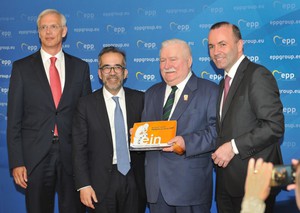- Ensuring conservation and sustainable use of fish stock in the area
- Better scientific cooperation and understanding of ecosystems
An international agreement to prevent unregulated commercial fishing in the high seas portion of the central Arctic Ocean received MEPs’ greenlight on Tuesday.
The deal aims to establish a long-term strategy (16 years) to safeguard healthy marine ecosystems, ensuring the conservation of stocks and guarantee the sustainability of the fishing activities in an area that is roughly 2.8 million square kilometres in size.
The signees of the deal - the EU, Canada, China, Denmark, Iceland, Japan, the Republic of Korea, Norway, Russia and USA- have agreed not to engage in commercial fishing activities in the high seas portion of the Central Arctic Ocean for an initial period of 16 years. The pact covers fish, molluscs and crustaceans.
Protecting biodiversity and ecosystems
Better understanding the biodiversity and ecosystems in the area to, in particular, determine whether fish stocks can be harvested on a sustainable basis and share this information is a key element of the agreement. The countries involved will have to facilitate scientific cooperation by establishing a Joint Program of Scientific Research and Monitoring, two years after the entry into force of the deal.
Any commercial fishing authorization should be based on the management measures adopted by regional and sub-regional fisheries management organizations (RFMO), based on the scientific information from the Joint Program of Scientific Research and Monitoring, national scientific programs and from other relevant sources.
Next steps
The agreement was approved by 629 votes to 21 against and 14 abstentions.
It will enter into force 30 days after all parties have deposited their ratification acceptance and approval instruments. At the same time, other non-parties are invited to take measures that are consistent with the same objectives.
Background
Being part of this agreement will help the EU to promote its environmental objectives and give access to scientific information, management measures and all future instruments put in place for this Area.
Commercial fishing is unlikely to become viable in the high seas portion of the central Arctic Ocean in the near future. However, given the changing conditions of the Arctic Ocean and the financial value of the fish stocks found there, the agreement is a step forward towards a sustainable, scientific based approach to fisheries management.



